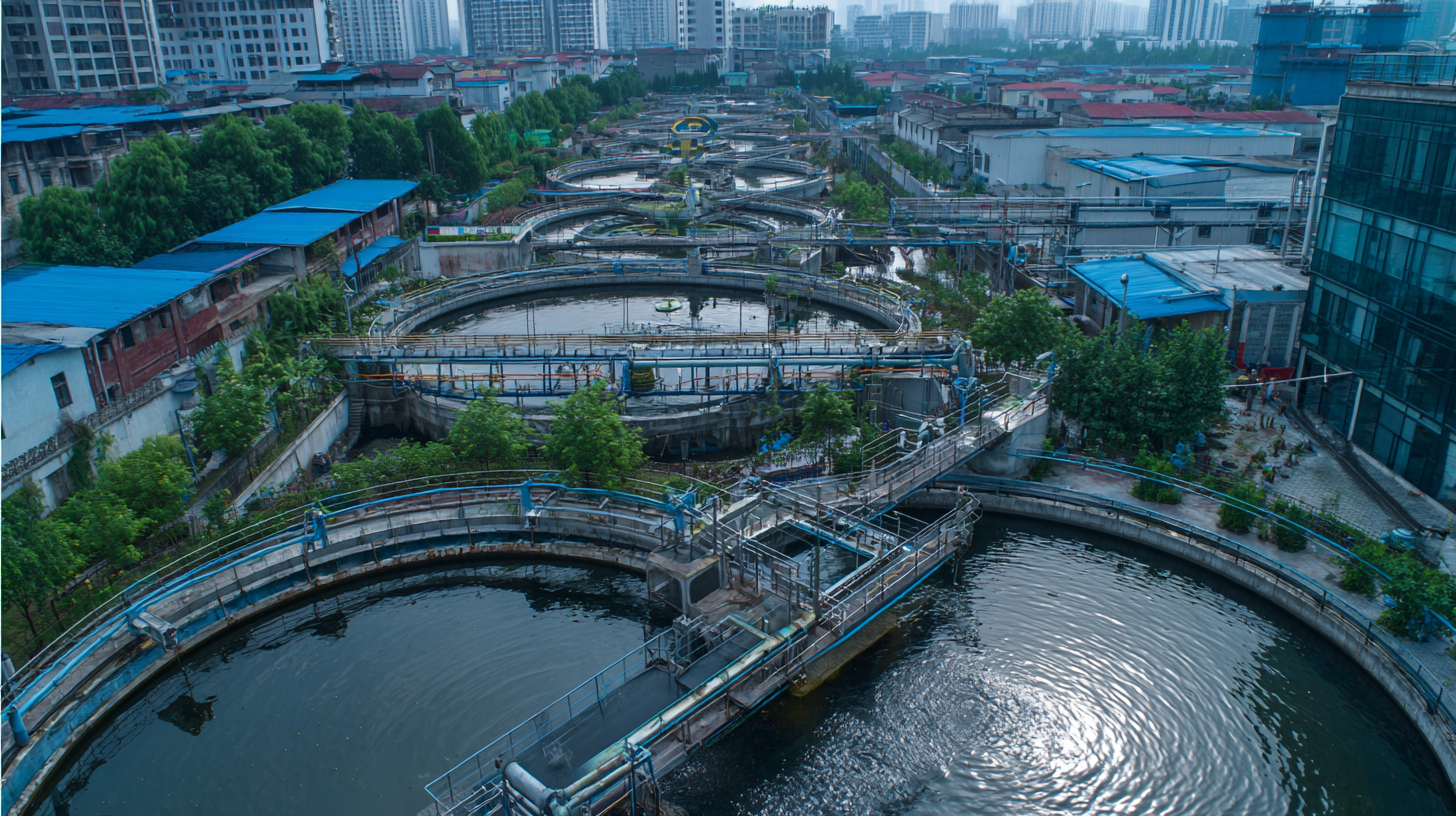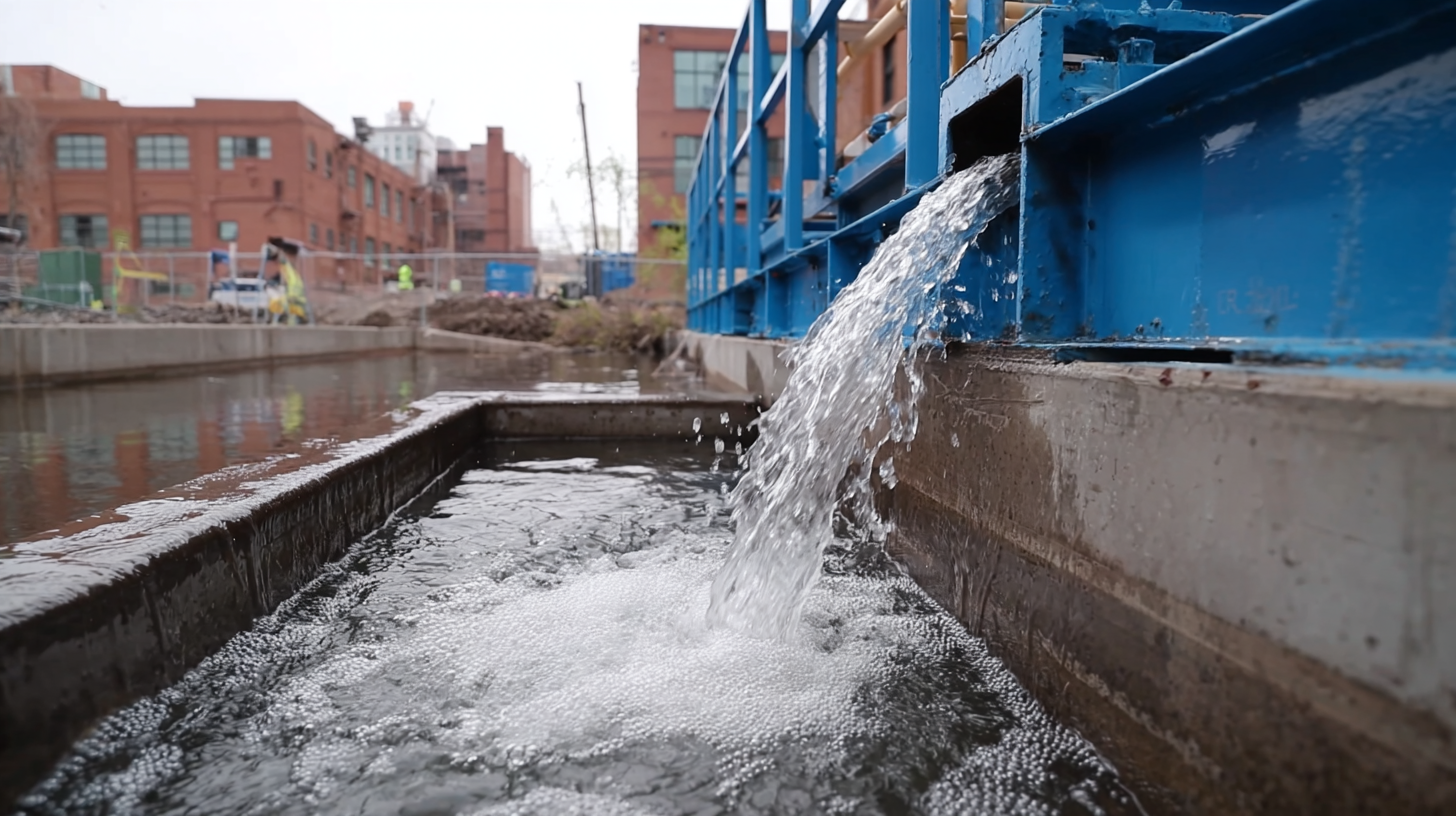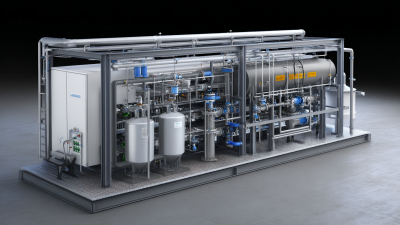Innovative Waste Water Systems Transforming Urban Water Management for Sustainable Development
As urban areas continue to expand, the management of water resources has become increasingly critical for sustainable development. Innovative waste water systems are at the forefront of addressing the growing challenges of urban water management. According to a report by the United Nations, over 80% of the world's waste water is discharged into the environment without adequate treatment, leading to significant health and environmental risks. Implementing advanced waste water systems can enhance the recycling of wastewater, potentially enabling cities to reuse up to 50% of their water supply, as noted by the World Bank. These systems not only alleviate pressure on natural water sources but also contribute to economic growth by creating jobs and fostering new technologies. By embracing digitalization and smart technologies, urban planners can develop efficient waste water systems that promote sustainability and resilience in rapidly urbanizing areas.

Understanding the Need for Innovative Waste Water Systems in Urban Environments
Urban environments face significant challenges in managing wastewater due to increasing populations, industrial activities, and climate change. Traditional wastewater systems often struggle to cope with the volume and complexity of waste produced, leading to pollution and health hazards. Innovative wastewater systems are crucial in addressing these challenges by employing advanced technologies that not only treat water more efficiently but also recycle it for various uses, such as irrigation and industrial processes.
The need for innovative wastewater systems stems from the necessity to enhance sustainability in urban areas. These systems can integrate green infrastructure, such as bioretention cells and constructed wetlands, which mimic natural processes to manage stormwater and reduce runoff. Furthermore, utilizing decentralized treatment options allows for localized management of wastewater, reducing the burden on central systems. This approach not only improves resilience against flooding and contamination but also fosters community engagement by involving residents in sustainable water practices. By prioritizing innovative solutions in wastewater management, urban areas can pave the way towards a more sustainable and environmentally friendly future.
Innovative Waste Water Systems Impact on Urban Water Management
This bar chart illustrates the annual water savings associated with innovative waste water systems compared to traditional systems. The data demonstrates that innovative approaches significantly enhance urban water management efficiency, leading to more sustainable development in urban environments.
Advancements in Technology Driving Sustainable Water Management Solutions
Innovative technological advancements are driving sustainable water management solutions across urban settings. One of the key developments includes AI-powered operational intelligence, which enhances decision-making and optimizes resource distribution in real-time. By integrating Internet of Things (IoT) solutions, cities can effectively monitor and manage non-revenue water, reducing waste and improving efficiency. These smart systems provide actionable insights that facilitate better management of water resources, ensuring sustainable operations that can adapt to growing urban demands.
Decentralized infrastructure is another promising aspect, allowing for localized water treatment options that reduce the need for extensive transportation networks. Furthermore, advanced systems like the AirSCWO in Orange County are revolutionizing biosolids management by processing millions of gallons of wastewater daily, demonstrating how innovation can lead to significant environmental benefits. As global water scarcity becomes more pressing, scaling initiatives like desalination and water reuse, as emphasized by leaders in the industry, is crucial for creating a sustainable future. By fostering partnerships and embracing these technologies, urban areas can transform their water management practices and make strides towards lasting sustainability.

Key Benefits of Integrated Waste Water Management for Urban Development
Integrated waste water management (IWWM) plays a crucial role in urban development by addressing the challenges posed by rapid urbanization and water scarcity. One of the key benefits of IWWM is its potential to enhance water reuse and recycling. By treating and repurposing waste water, cities can reduce their reliance on freshwater sources, thus ensuring a more sustainable and resilient water supply. This not only conserves vital water resources but also mitigates the environmental impact of effluent discharge into natural water bodies.

Moreover, IWWM contributes to urban resilience by managing stormwater effectively. It encompasses strategies such as green infrastructure, that not only manage excess water during heavy rains but also improve urban aesthetics and biodiversity. This holistic approach not only reduces flooding risks but also improves public health by minimizing pollution and enhancing the quality of water systems. In turn, these improvements result in thriving urban environments that are better equipped to handle the challenges of climate change, ensuring a healthier and more sustainable future for urban populations.
Case Studies: Successful Implementation of Innovative Waste Water Systems
Innovative wastewater systems have become essential in transforming urban water management, with several cities showcasing successful implementations that highlight their effectiveness. For instance, the city of Singapore has made significant strides with its NEWater initiative, which treats and recycling wastewater into ultra-clean water. This system not only addresses the scarcity of natural water resources but also demonstrates how integrated approaches can foster a sustainable urban environment. By utilizing advanced membrane technologies and reverse osmosis, NEWater provides an innovative solution that can be adapted globally.
Another notable case study is found in the city of Melbourne, Australia, where the implementation of the Integrated Water Management framework addresses both stormwater and wastewater. This collaborative approach combines green infrastructure—such as rain gardens and bio-swales—with traditional wastewater treatment, significantly reducing pollution in local waterways. The outcome is a robust system that enhances urban resilience while promoting community engagement in sustainable practices. These examples underline how innovative wastewater systems can lead to meaningful advancements in urban water management, benefitting both the environment and the population.
Future Trends in Urban Water Management and Waste Water Solutions
The future trends in urban water management and wastewater solutions are becoming increasingly crucial as cities grapple with the dual pressures of climate change and rapid urbanization. The demand for innovative wastewater systems is on the rise, aiming to enhance water reuse and meet stringent regulatory standards. The global market for smart water and wastewater treatment technologies is projected to significantly grow, with estimated revenues reaching $56.7 billion by 2025 and $83.6 billion by 2035. This highlights the urgency for municipalities to adopt advanced technologies that improve efficiency and service quality.
**Tips:** One effective strategy for urban planners is to invest in smart monitoring systems that enable real-time data analysis, thereby enhancing decision-making processes. Additionally, embracing sustainable practices, such as decentralized wastewater treatment systems, can alleviate strain on centralized infrastructures while promoting local resource recovery.
As the landscape of water management evolves, the role of guided technologies such as intelligent pumping systems becomes paramount. With expected growth in the domestic pump market from $18.58 billion in 2024 to $26.92 billion by 2032, integrating these innovations into urban infrastructure is essential for achieving sustainable water management that can withstand future challenges.
Innovative Waste Water Systems Transforming Urban Water Management for Sustainable Development
| Category | Current Trends | Future Innovations | Environmental Impact | Investment Opportunities |
|---|---|---|---|---|
| Decentralized Systems | Increased adoption of small-scale wastewater treatment plants | Integration of smart technology for real-time monitoring | Reduced environmental footprint and improved local water quality | Public-Private partnerships for facility upgrades |
| Recycling and Reuse | Growing focus on greywater recycling in urban areas | Advanced filtration and treatment technologies for safe reuse | Conservation of freshwater resources through reduced demand | Incentives for municipalities to invest in recycling systems |
| Energy Recovery | Increasing use of anaerobic digestion to generate biogas | Innovative technologies for capturing and utilizing energy | Significant reductions in greenhouse gas emissions | Funding for research in energy recovery technologies |
| Smart Water Management | Implementation of IoT devices for system optimization | AI-driven analytics for predictive maintenance | Improved efficiency leading to lower operational costs | Investment in smart infrastructure technologies |
Related Posts
-

What Are Waste Water Treatment Systems and How Do They Work?
-

Innovative Solutions for Effective Industrial Waste Water Treatment Systems
-

What is the Role of Waste Water Treatment Plants in Sustainable Water Management?
-

Exploring Innovations in Waste Water Treatment Systems at China's 138th Canton Fair 2025
-

5 Essential Tips for Choosing the Right Screw Pumps for Your Business
-

Exploring Innovations in Package Wastewater Treatment Plants at the 138th Canton Fair 2025


